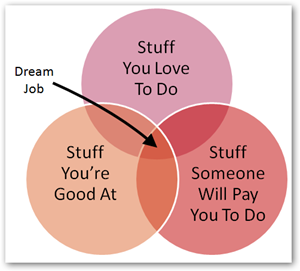Podcast: Play in new window | Download
Subscribe: Spotify | Email | TuneIn | RSS
If you wake up every morning excited to go to work, you’re ‘in-the-zone’ all day, and you come home refreshed and excited to start a new day, please stop reading now. Everyone else, join me in paragraph two.
A story for the rest of us
Oh good, they’re gone. It’s hard enough to work at a job you dislike, but it’s much worse when the people around you seem to love what they’re doing. As they succeed, you feel like a failure. They seem engaged with the work, while you watch the clock until closing.
But fear not: there are steps you can take today to find a career you’ll love. Step one is to learn from other people’s mistakes and avoid their stupid choices!

This week on the show, Daniel shares his story of landing in graduate school and realizing too late that it wasn’t a good fit with his work style or abilities. Experiments weren’t working, and he began to lose hope of ever finding a career he’d love.
Quitting was an option, but there’s such a stigma in the academic world for those who “leave with a Masters.” In the end, he finished the degree, and took the time to understand which aspects of his work life made him happy.
Along with the harrowing tale of poor life choices, we discuss the red flags that indicate you might be on the wrong path. We also identify a few of the components of a satisfying career and why it’s important to start seeking them today.
Reaching for the top shelf
To extract Daniel’s story, Josh bribed him with a special ethanol this week. It’s Basil Hayden’s Bourbon with one ice cube. If you’re in grad school, you may have to take out a loan in order to buy some!
Josh also shares some fun research linking bee foraging behavior to caffeine content in the nectar. It makes the bees head out to the dance floor, and they seem to get addicted to the sweet tasting stimulants. It’s like Red Bull for bees!

